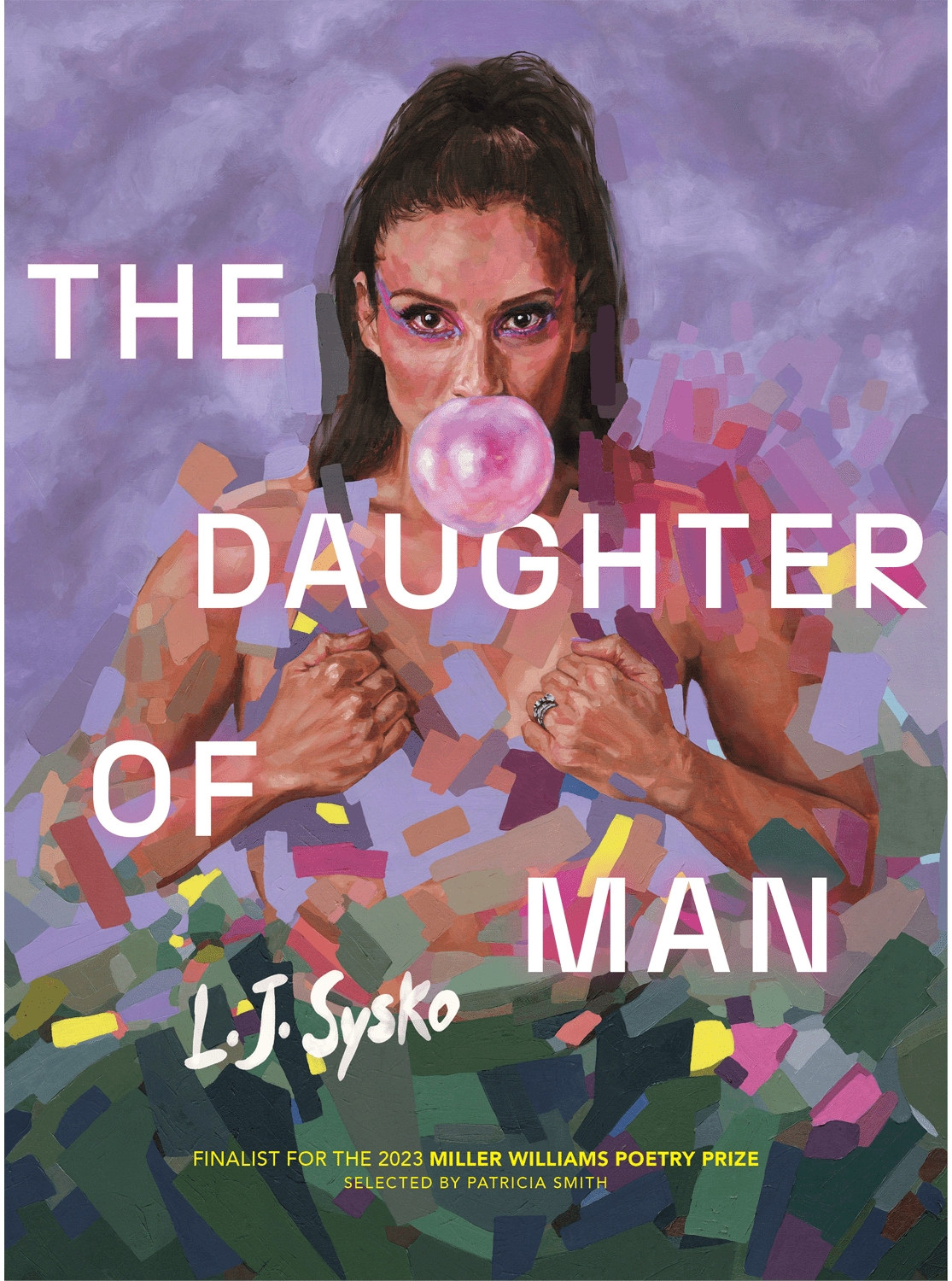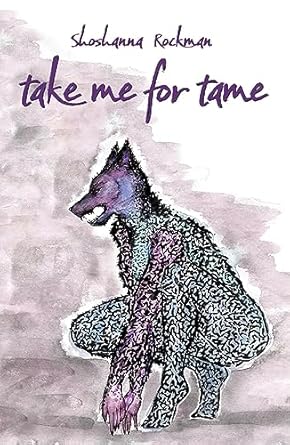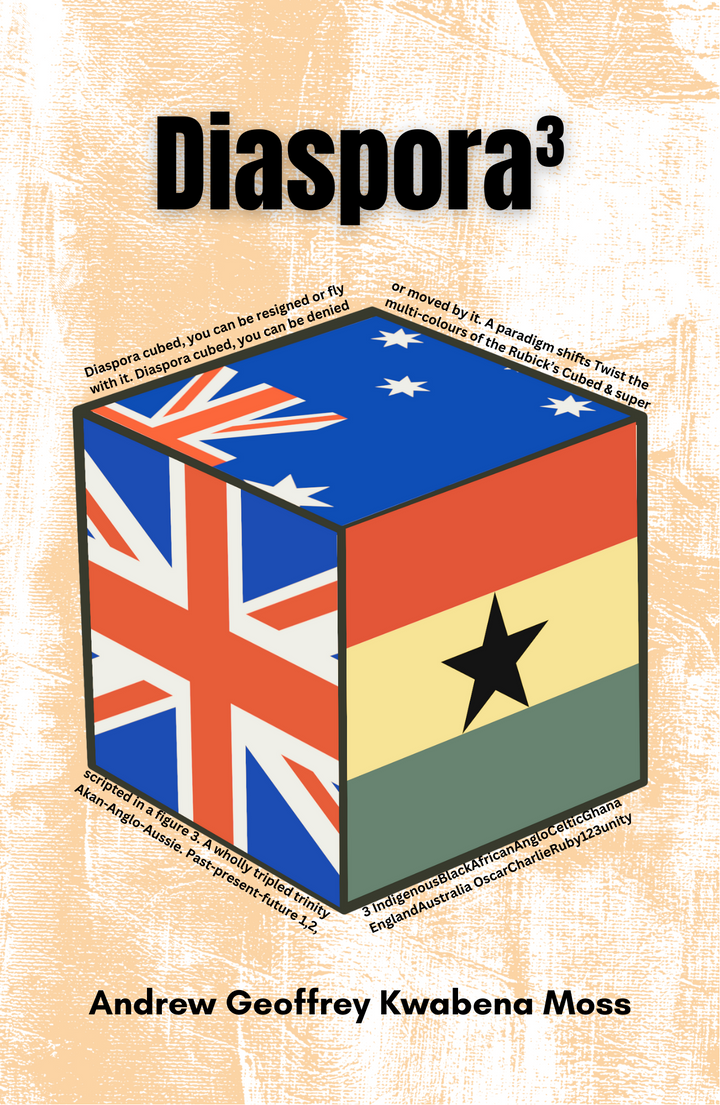 Acevedo-Quiñones includes family trees and freely admits that some of her facts are speculation, sometimes pieced together from “drunken spill sessions,” hearsay, half-remembered conversations. “Secrets are our family members, too,” after all, as she wisely points out in the vignette, “Secreto.”
Acevedo-Quiñones includes family trees and freely admits that some of her facts are speculation, sometimes pieced together from “drunken spill sessions,” hearsay, half-remembered conversations. “Secrets are our family members, too,” after all, as she wisely points out in the vignette, “Secreto.”
Tag: poetry
Conjuring the Artist: A review of The Daughter of Man by L.J. Sysko
 L.J. Sysko’s Daughter of Man is an exquisite dance in which form, function, image, and metaphor shape a discernible allegory of embodied personae. And while these speakers delight the reader with a variety of references to pop culture, they also serve as reminders of our shared historical narratives, ones we cannot let slip from our cultural memories.
L.J. Sysko’s Daughter of Man is an exquisite dance in which form, function, image, and metaphor shape a discernible allegory of embodied personae. And while these speakers delight the reader with a variety of references to pop culture, they also serve as reminders of our shared historical narratives, ones we cannot let slip from our cultural memories.
A review of take me for tame by Shoshanna Rockman
 Shoshonna Rockman’s debut poetry collection, take me for tame, is anything but tame. These are fierce poems, rooted in an exuberant defiance that works through oppression to find triumph.
Shoshonna Rockman’s debut poetry collection, take me for tame, is anything but tame. These are fierce poems, rooted in an exuberant defiance that works through oppression to find triumph.
A review of Let Our Bodies Change the Subject by Jared Harél
 Harél searches for joy with the recognition of how much we are up against in the world. His has a willingness to see sharply the challenges and obstacles that are often devastatingly difficult to understand—to admit joy through inquiry and truth. If we do not see clearly, we are victims of magical thinking, wholly unprepared for those inevitable struggles and painful circumstances that are unavoidable.
Harél searches for joy with the recognition of how much we are up against in the world. His has a willingness to see sharply the challenges and obstacles that are often devastatingly difficult to understand—to admit joy through inquiry and truth. If we do not see clearly, we are victims of magical thinking, wholly unprepared for those inevitable struggles and painful circumstances that are unavoidable.
A review of Talking Me Off the Roof by Laurie Kuntz
 All in all, these poems are sensitive, moving, perceptive, and carefully crafted gems. Discouragement might lurk in the words, yet the balance is tilting toward hope. As expressed in the poem “A Close and Constant Rage,” the poet notes “my continuous rage colliding / with the natural world, … / surround me with a can-do moment of hope.”
All in all, these poems are sensitive, moving, perceptive, and carefully crafted gems. Discouragement might lurk in the words, yet the balance is tilting toward hope. As expressed in the poem “A Close and Constant Rage,” the poet notes “my continuous rage colliding / with the natural world, … / surround me with a can-do moment of hope.”
A review of The Elk in the Glade by Bruce E. Whitacre
 Whitacre makes it clear from the start that this is family folklore handed down over generations at Thanksgiving dinners and Christmas celebrations and other family gatherings. Indeed, the second poem, “Jennie at Thanksgiving,” introduces us to the central figure, now a toothless old lady who is hard of hearing, her food “ground to mush” so that she’s able to eat. “She gums away fitfully.”
Whitacre makes it clear from the start that this is family folklore handed down over generations at Thanksgiving dinners and Christmas celebrations and other family gatherings. Indeed, the second poem, “Jennie at Thanksgiving,” introduces us to the central figure, now a toothless old lady who is hard of hearing, her food “ground to mush” so that she’s able to eat. “She gums away fitfully.”
A review of She Doesn’t Seem Autistic by Esther Ottaway
 Ottaway explores the way that women are often taught to mask emotions which can make diagnosis difficult. The book is also deeply personal, putting the reader directly into the experience and incorporating a welter of complex emotions, sensations, and perspectives that are powerful. Poetry is the right medium, embracing the complexity through rhythm, structure, imagery, and an engagement in the senses that creates immediacy.
Ottaway explores the way that women are often taught to mask emotions which can make diagnosis difficult. The book is also deeply personal, putting the reader directly into the experience and incorporating a welter of complex emotions, sensations, and perspectives that are powerful. Poetry is the right medium, embracing the complexity through rhythm, structure, imagery, and an engagement in the senses that creates immediacy.
A review of Anamnesis by Denise O’Hagan
 O’Hagan manages a delicate balance between immediacy and nostalgia with a light hand that feels natural, inviting the reader into the moment to share in the meaning making. There are layers of desire pervading the work, time and space condensing, folding into itself in sudden revelations that come into a quiet scene with the force of empathy
O’Hagan manages a delicate balance between immediacy and nostalgia with a light hand that feels natural, inviting the reader into the moment to share in the meaning making. There are layers of desire pervading the work, time and space condensing, folding into itself in sudden revelations that come into a quiet scene with the force of empathy
A review of Diaspora3 by Andrew Geoffrey Kwabena Moss
 Moss’ words are eloquent and have a deep ring of truth. I love how he utilises sophisticated words mixed with slang. Several of the poems engage with the suffering of First Nations people including the welfare abuse of children who were taken away from their families. Moss pulls no punches, and his words are hard-hitting and powerful.
Moss’ words are eloquent and have a deep ring of truth. I love how he utilises sophisticated words mixed with slang. Several of the poems engage with the suffering of First Nations people including the welfare abuse of children who were taken away from their families. Moss pulls no punches, and his words are hard-hitting and powerful.
A review of A Random Caller – Cancer Poetry by Heather Cameron
 Cameron is very creative and is able to reveal a lot in the different ways she writes and sets the poems. For example in one poem she utilises pieces of dialogues which are obviously spoken at the time of the diagnosis. In this section there is also a very poignant poem titled “A Letter to my Body”. We sometimes see our body as a different entity and we question ‘it’,or get angry with ‘it’ thinking or saying “how can you do this to me?”.
Cameron is very creative and is able to reveal a lot in the different ways she writes and sets the poems. For example in one poem she utilises pieces of dialogues which are obviously spoken at the time of the diagnosis. In this section there is also a very poignant poem titled “A Letter to my Body”. We sometimes see our body as a different entity and we question ‘it’,or get angry with ‘it’ thinking or saying “how can you do this to me?”.